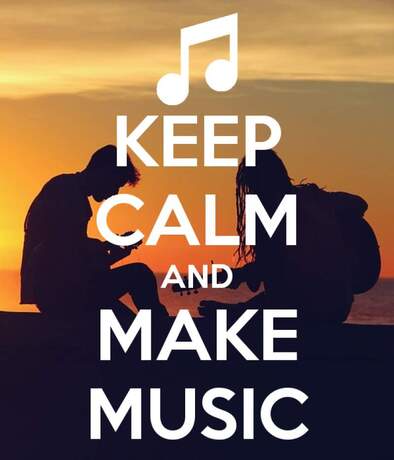Where musicians once feared the onslaught of technology creating machines and overtaking the future pool of young pedagogues, they can now witness an explosion of inspiration, spanning toddlers to elderly all over the world. Social media and news reports are on fire with stories of music-making. Whether in the apartment next door, across the city, or the other side of the world, the oppositional debate that music can wash away the dust of everyday life, or virus in this case, is deceased.
Leaders like President Barack Obama have used it to console sadness and celebrate triumphs. Scientists from Darwin to Einstein have often referred to music’s importance serving humanity, though researchers could not produce quantitative data as to why.
David A. Sousa explains that music is basic to the human experience in How the Brain Learns (5th ed.):
“These cerebral talents did not develop by accident. They are the result of many centuries of interaction between humans and their environment, and the continued existence of these talents must indicate they contribute in some way to our survival. In those cultures that do not have reading and writing, the arts are the media through which that culture’s history, mores, and values are transmitted to younger generations and perpetuated.” (p. 244)
Moreover, “we have never discovered a culture - past or present - that doesn’t have music, art, and dance.” (Sousa, p. 245)
The Coronavirus pandemic has certainly impacted our ability to publicly enjoy the arts, but why are people singing and playing to each other from balconies across Italy and Spain? Why are people creating family videos performing music? Why are the world’s top artists making music at home for fans? #TogetherAtHome
Why do humans need music, especially at times of dissonance?
It is biological. “The biological aspect is supported by the fact that the brain has specialized areas that respond primarily to music, and these areas are able to stimulate the limbic system, provoking emotional response.” (Sousa, p. 256)
As addressed in previous blogs, no creature’s limbic system (where we process emotions) functions like the human brain, and research suggests our brain’s emotional center is evolving to be more complex. Listening to music stimulates the brain in a vastly different way than creating music; however, our emotional responses to what we hear can be a point of connection across the waves and all borders.
COVID-19 may assault and alter our society physically, but its effects have unleashed what makes us human. Music’s inability to be created and heard in a vacuum is shattered via technology, as we now have a new norm of exploration and sustainable evidence proven on record.
Government officials, take heed! In fact, music is essential to our survival. Contemplation of slashing budgets is unsubstantiated and void. Music educators and advocates around the globe will hold you accountable.
#COVID19 #Music #MusicEducation #MusicAdvocacy #MusicForAll #NAfME #nationalendowmentforthearts


 RSS Feed
RSS Feed